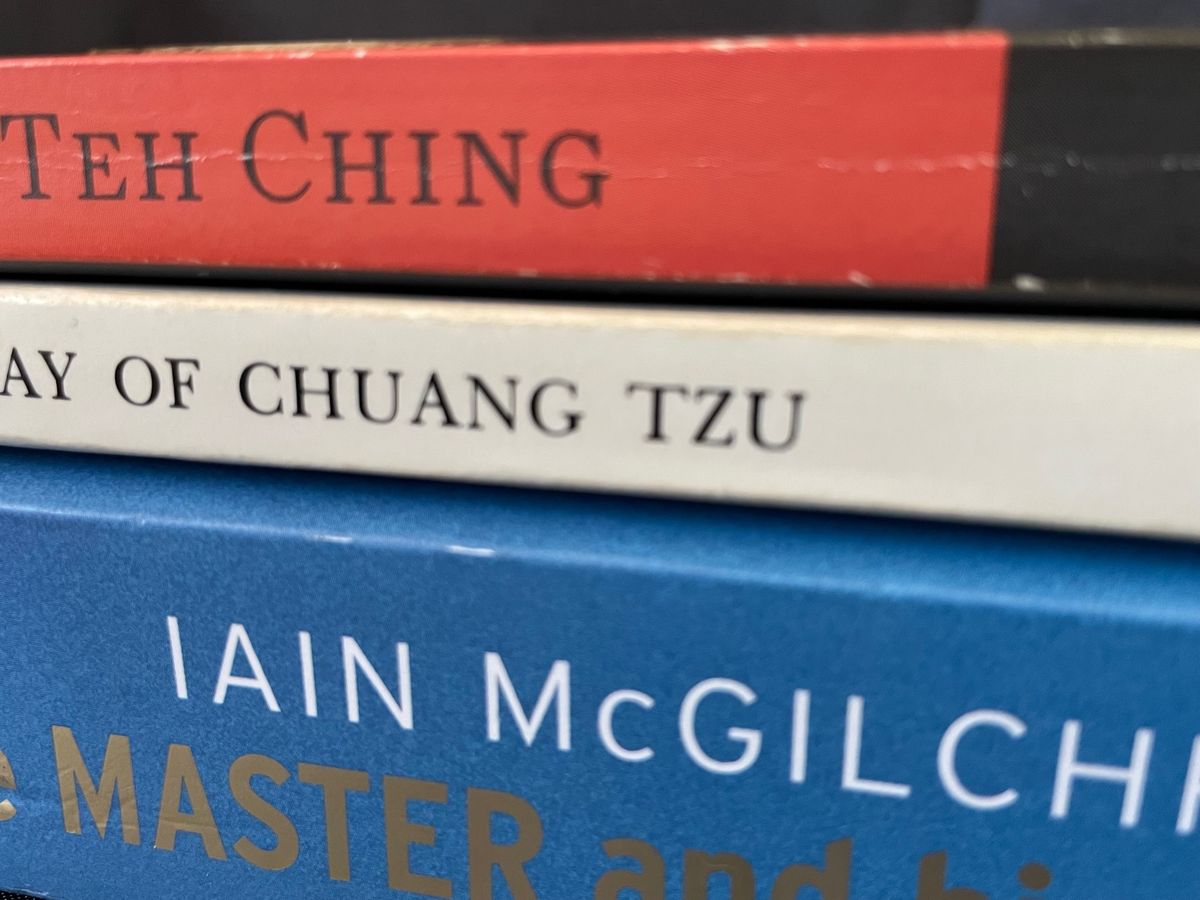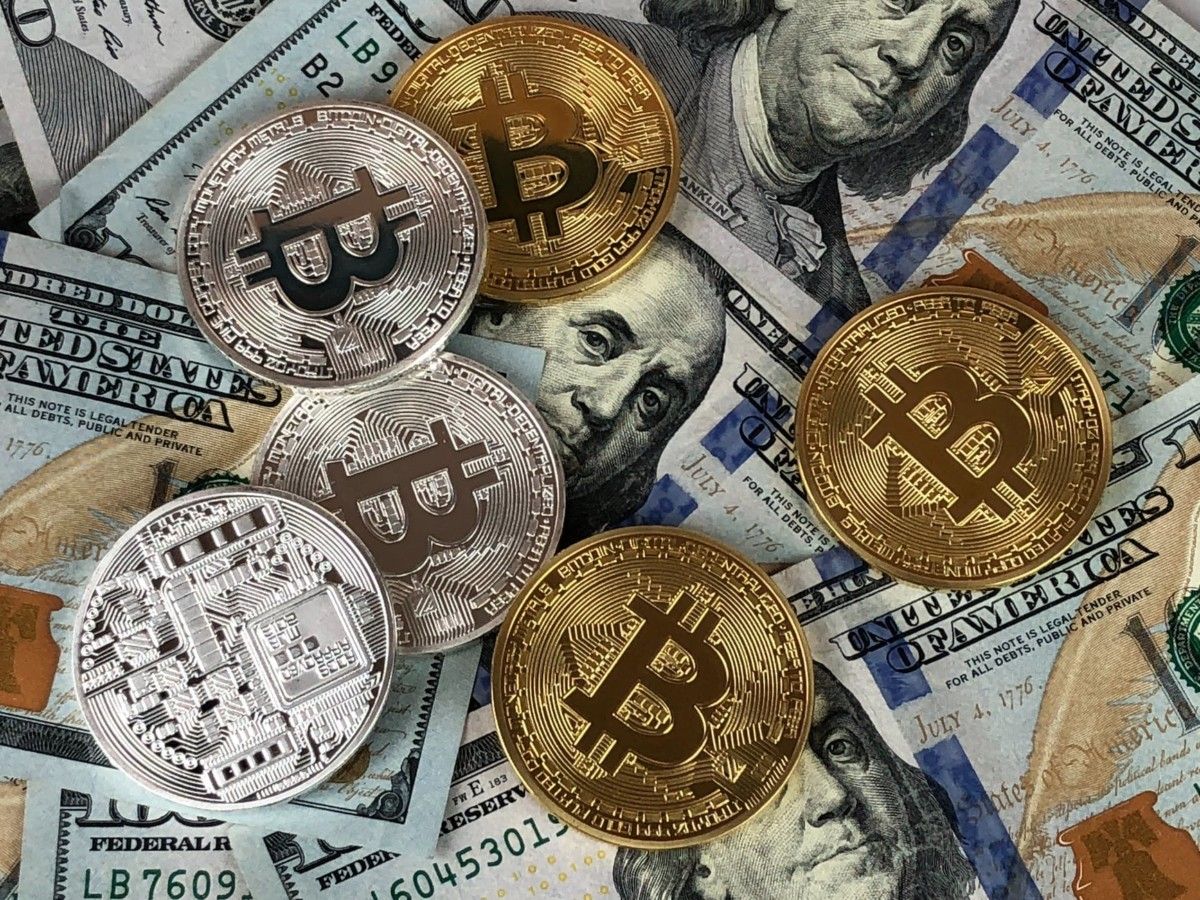How to Kill the Tao
The left hemisphere gets things done. The Tao isn’t concerned about getting things done. Let your left hemisphere dominate: you’ll never be bothered by the Tao again.

The left hemisphere gets things done. The Tao isn’t concerned about getting things done. Let your left hemisphere dominate: you’ll never be bothered by the Tao again. A focus on money is the best tool for accomplishing this.
Since its publication in 2010, Iain McGilchrist’s The Master and his Emissary has pretty much ensconced itself as a modern classic and an intellectually landscape-shifting work.
The book is divided into two parts.
The gist of the first part (the gist of the second part doesn’t concern us here[i]): The brain’s two hemispheres understand existence differently. The right hemisphere understands existence “holistically,” taking into account the big picture, all of reality. The left hemisphere understands existence mechanically, as a series of problems to be addressed.
In a properly-balanced individual, the left hemisphere (the emissary) works for the right hemisphere (the master). In an improperly-balanced individual, the left hemisphere becomes the master.
When that happens, a person suffers a contraction of reality. The left hemisphere’s focus, after all, is narrow (focusing on specific aspects of reality); the right hemisphere’s is broad or whole (taking into account all of reality). When we allow the left hemisphere to rule, we exist exclusively in the right two-thirds of the Reality Spectrum, cutting off the remaining third:
Act of Existence/The Tao-->Essence/Accident-->Being/Substance
It’s that left[ii] side of the Reality Spectrum (the Tao portion) that is eliminated in the left hemisphere’s understanding and pursuits.[iii] So if we want to kill the Tao in us, we need to live in the left hemisphere and let it dominate our lives.
A View from the Left Hemisphere
The left hemisphere approaches the world with purpose and precision.
The left hemisphere’s role is to let us survive. The left hemisphere is the guy in the trenches, the guy who works to put food on the table. When the car doesn’t start, the left hemisphere figures out why. When a bill comes due, the left hemisphere figures out how to pay it.
The left hemisphere is:
Narrowly-focused
Purpose-driven, with a corresponding emphasis on efficiency
Mechanistic, making use of things (utility)
Interested in dividing and separating
Competitive
Motivated by power.
Money Lets Us Dwell in the Left Hemisphere
Remember, the left hemisphere doesn’t appreciate the Tao portion of the Reality Spectrum, so if you want to kill your experience or access to the Tao, you should live through the left hemisphere. You should, in other words, exist solely in a mode of existence that inculcates those six traits above.
The best way to do this?
Focus on money.
https://www.youtube.com/watch?v=E-P2qL3qkzk
1. Narrow
It’s best to focus on one thing and one thing only. In order to do this, you need to find something sufficiently compelling to occupy your focus. A mere hobby rarely suffices. You need something more important, something that touches on survival and necessities.
Money fits this perfectly. It’s necessary for our survival and it’s multi-faceted. You can focus on your job and side hustles. You can chart stocks and buy Bitcoin. You can horde foodstuffs. You can cut corners and increase your savings.
Money is a great absorbing source of focus.
2. Purpose-driven, with emphasis on efficiency
Money is high-octane fuel here. Time is money. That’s not just a cliché. It’s a serious fact. And the money man knows it . . . feels it in the marrow of his bones. He lives in a constant buzz of activity as he moves from one money-making endeavor to another, always scheming, always angling to use his time to make money . . . and not waste it on things that don’t make money.
It’s one reason, I believe, that ambitious people tend to be teetotalers or heavy drinkers. They either eschew liquor altogether because it hinders efficiency or they hit the bottle hard in order to turn off that constant buzz that tells them they should be doing something to make money.
3. Mechanistic, utility
When you focus on money, anything that doesn’t further profitability is discounted. Anything that gets in the way is discarded. Art, poetry, meditation: stupid. If it doesn’t further the bottom line, it’s foolish or fodder for immature people who haven’t grown up to appreciate the real world.
The money man is also mechanistic. Money is, after all, a numbers game and nothing is more mechanistic than math.
4. Interest in dividing and separating
The mental activities of dividing and separating allow us to categorize and think more clearly and, indeed, to function in the world. They’re crucial mental activities.

The problem is, categorizations are never fully accurate. They might be necessary, but they aren’t correct in their nuance.
Consider our natural tendency to stereotype. We, for instance, lump all bums[iv] on the street together. Such categorization helps us avoid harm by such people (as a class, they’re mentally unstable, unconventional, and unpredictable) and therefore stay safe (a good thing) but at the price of not fully appreciating a handful of full realities, such as the socio-economic circumstances that lead to bums or the full reality of the individual bum who has a unique history and is far more interesting and nuanced than “just another bum.”
The acts of dividing, separating, and categorizing are useful but at the price of contracting full reality. They’re efficient but inaccurate in their incompleteness.
The money man doesn’t think about such things. He needs utility, he needs efficiency. He relentlessly divides, separates, and categorizes: this increases wealth; this doesn’t. Full, nuanced, reality doesn’t matter and, indeed, can get in the way of making money.
5. Competitive
I don’t think I need to explain that the money man is competitive. She always wants more than the next person. If someone has more, she isn’t content. It’s a frequent Hollywood trope for a reason.
6. Primarily motivated by power
The Jewish mystic Simone Weil called money “power’s master key.” The person who wants money just wants power. It’s that simple. Money lets a person get and do virtually any carnal or earthly thing a person wants. From jets to sex, money gets it all. Every money man knows it, even if only semi-consciously at times.
The money man, in other words, is innately self-centered, so he wants power.
Money is Unique in Its Ability to Kill the Tao
Of course, a lot of things can result in the undue swelling of the left hemisphere and separate us from the Tao. In fact, I think every activity or interest can take on those qualities. Even prayer, if practiced perversely enough, can.
I think that’s the underlying charm of Clint Eastwood’s The Mule. A flower gardener led a life that exemplified many of the traits above, making him distasteful to those closest to him, but as an old man, he started trafficking drugs and became a better individual. A task like gardening (which most people consider either harmless and some consider ennobling) resulted in a lot of left hemisphere activity but a task like drug-running (which most people consider harmful and degrading) resulted in a re-emergence of the right hemisphere’s appreciation for the greater reality.
So yes: Left hemisphere thinking is not remotely confined to money. It sprouts anywhere and everywhere.
But money is unique. Because it is power’s master key, it exerts a uniquely strong pull.
Contemporary studies have borne this out. In Chapter 4 of another modern classic, Thinking, Fast and Slow, Daniel Kahneman describes the effects that the mere suggestion of money has on people (referred to as “priming”).
In one experiment, participants were slightly primed with money images, like a picture that has a stack of Monopoly money in the background or a screen saver with dollar bills floating in water. The results were startling, leading to greater perseverance in problem-solving, greater self-reliance, less willingness to leave the task to help others, and in general, just downright selfishness:
Reminders of money produce some troubling effects. . .
Money-primed people become more independent than they would be without the associative trigger. They persevered almost twice as long in trying to solve a very difficult problem before they asked the experimenter for help, a crisp demonstration of increased self-reliance. Money-primed people are also more selfish: they were much less willing to spend time helping another student who pretended to be confused about an experimental task. When an experimenter clumsily dropped a bunch of pencils on the floor, the participants with money (unconsciously) on their mind picked up fewer pencils. In another experiment in the series, participants were told that they would shortly have a get-acquainted conversation with another person and were asked to set up two chairs while the experimenter left to retrieve that person. Participants primed by money chose to stay much farther apart than their nonprimed peers. Money-primed undergraduates also showed a greater preference for being alone. . . .
The general theme of these findings is that the idea of money primes individualism: a reluctance to be involved with others, to depend on others, or to accept demands from others.
Money is, as far as the world goes, everything. Put another way, money is, as far as the right two-thirds of the Reality Spectrum goes, everything. There’s nothing in the right two-thirds of the Reality Spectrum that cannot be acquired or at least facilitated by money. Moreover, it’s the only thing in the world with this attribute.
Money is probably also the only thing in the world that has nothing about the Tao in it. The gardener finds attributes of the Tao in the garden; the golfer can find it on the golf course. Heck, I think it’s even possible to find something of the Tao in a brothel, and I know it’s possible to find a little Tao in the bottle.
But I don’t think there’s any Tao in money. Money, by definition, is that thing connected only to the non-Tao part of our existence.
Robert Graves was right when he said, “There’s no money in poetry, but then there’s no poetry in money, either.”
But he would’ve been even more correct to say, “There’s no money in the Tao, but then there’s no Tao in money, either.”
Endnotes
[i] But if you’re curious: The second part of the book asserts that, in western civilization, the left side (the emissary) has usurped the right side’s (the master’s) role.
[ii] “Left” here is not a political reference point . . . in fact, it’s the complete opposite of a political reference point. More on that later.
[iii] “Left” hemisphere and “left” side of the Reality Spectrum is an unfortunate coincidence since they’re somewhat contradictory. “Left” hemisphere is what current science shows us about the brain’s process. The “left” side of the Reality Spectrum is merely my construct, framed from the western world’s custom of reading from left to right, to signal that the Act of Existence/Tao is prior to essence and being.
[iv] Compared to “homeless,“ the term “bum” is more succinct and, indeed, almost humorlessly poetic, so I’m using it here with no ill intent.
